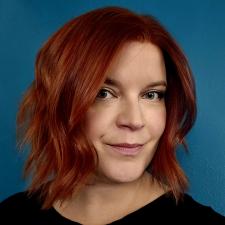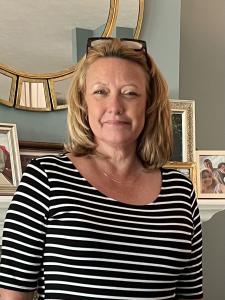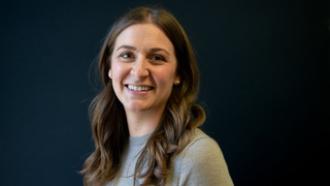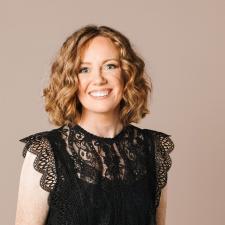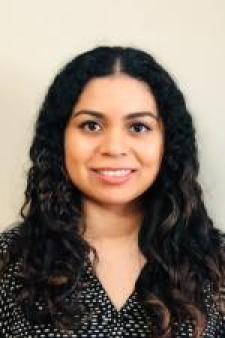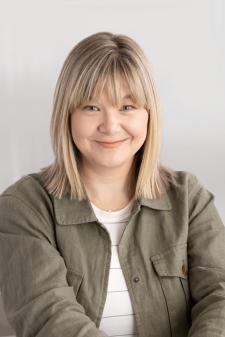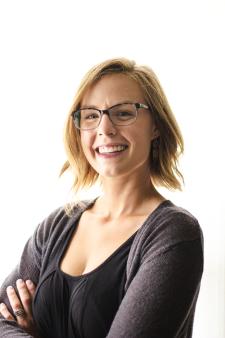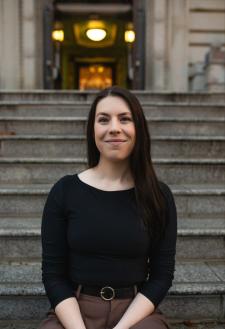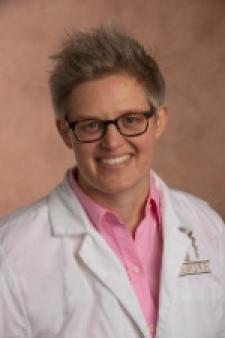Timeline of Events
8:00-8:30 Registration and Breakfast
8:30-8:45 Opening Remarks (Nancy Hock, PhD, OTRL, FAOTA)
8:45-10:15 Keynote Session (Jenn Soros, PhD, OTRL & Beth Ann Walker, PhD, OTR, FAOTA)
10:15-10:30 Barbara Hemphill & Sandra Edwards Scholarship presentations
10:30-11:00 Break (OTA poster presentations and exhibitors)
11:00-12:00 Breakout Session 1 (3 options, see below)
12:00-1:00 Lunch (OTA poster presentations and exhibitors)
1:00-2:00 Breakout Session 2 (3 options, see below)
2:00-2:15 Break
2:15-3:15 Plenary Session (Katie Mesko, DrOT, OTRL)
3:15-3:30 Closing Remarks
Session Descriptions
| Keynote Session | Breaking Silence Through Science: Transforming Approaches to Sexuality and Intimacy Through Evidence and Innovative Dissemination Jenn Soros, PhD, OTRL & Beth Ann Walker, PhD, OTR, FAOTA Following Barbara Rider's legacy of championing research and evidence-based practice, this keynote presentation will showcase how contemporary research is transforming occupational therapy practice in previously under-addressed areas of occupation. Through our international research and practice innovation in addressing sexuality and intimacy needs, we demonstrate the evolution of evidence-based practice in occupational therapy, from identifying practice gaps to developing theoretical frameworks and assessment tools to innovative methods of knowledge translation. |
| Plenary Session | Stress as a Hidden Occupation: How Regulation Shapes the Way We Show Up Katie Mesko, DrOT, OTRL Stress shows up in everything — in how we listen, plan, adapt, connect, move, and think. We all engage in stress management, often without realizing it. It’s a constant, hidden occupation woven into the background of every role we hold. As occupational therapists, we help others regulate, adapt, and participate. But how often do we name and tend to the invisible work we do to manage our own stress? In this session, we’ll explore simplified neuroscience and physiology to show how stress shapes everyone’s occupational experience — yours, your clients’, and your students’. More importantly, we’ll translate that understanding into doable, meaningful practices you can actually use. This isn’t about bubble baths or burnout prevention. It’s about honoring stress management as a foundational, hidden occupation — one that underpins all others. |
Morning Breakout Sessions
Afternoon Breakout Sessions | Picky Eaters & Problem Poopers: Pediatric Clues to Hidden Pelvic Floor Dysfunctions Amy Underwood, OTRL In the pediatric world, toileting and feeding are everyday tasks that can mask deeper challenges. This breakout session will explore how subtle signs—like picky eating or chronic constipation—may reveal hidden pelvic floor dysfunctions in children. Attendees will learn how to identify, assess, and address these often-overlooked issues with developmentally appropriate strategies, via the lens of occupational therapy. This session promises a lively and practical discussion on how to support meaningful participation in the hidden occupations of daily life. |
Navigating Culture in ADL Care: Practical Skills for Inclusive Support Azalia Gonzalez, OTD, OTRL This session will describe different cultural practices related to activities of daily living (ADLs), with a specific focus on Black, Hispanic, Asian, and Native American cultures. We'll explore how diverse cultural beliefs, family structures, and community values influence participation in ADLs and therapy. Participants will be prompted to reflect on their own implicit biases and discuss strategies for recognizing and mitigating the impact on care, promoting self-awareness, and fostering open communication. Additionally, we will review culturally sensitive assessment and intervention techniques, such as ethnographic questioning, to support improved identification of individual and familial ADL needs. Finally, this session will include interactive stations where participants can engage in hands-on activities tailored to specific cultural contexts, ultimately enhancing their ability to provide respectful, effective, and culturally congruent support to clients. | |
Recognizing Mental Health Concerns & Local Resources Julie Helmer & Bethany Donohuse What does mental health look like and how might you recognize someone is needing help. This session will briefly explore some things to consider regarding what to look for regarding mental health. After you recognize what might be going on for a person it is important to know what resources are available and where to go. This session will discuss a few options that are available. | |
Managing Screen Time for Children Michelle Suarez, PhD, OTRL, FAOTA & Rebecca Hernández, MS, OTR/L Digital media usage has become a pervasive part of life and children who are neurodiverse are particularly drawn to screens. This session will cover the impact of screentime on the developing brain and the reasons children are drawn to digital media. Strategies to support families in developing health screen habits will be explored. Through creating health habits and thoughtful consumption, screens can be a source of learning and connecting to the world. | |
Restoring Control: Occupational Therapy’s Impact on Neurogenic Bowel and Bladder Dysfunction Morgan Bliss, MS, OTRL Neurogenic bowel and bladder dysfunction often significantly impacts occupational performance, quality of life, and psychosocial well-being. With a holistic and client-centered lens, occupational therapists are uniquely equipped to address the challenges of continence management. This session will outline OT’s role in assessing and treating individuals with neurogenic bowel and bladder dysfunction across neurologic populations. Participants will review relevant anatomy, common diagnoses, and evidence-based interventions to promote autonomy, dignity, and independence. Emphasis will be placed on building clinical competence, fostering interdisciplinary collaboration, and advocating for OT’s role in this essential area of practice. | |
Delivering Gender Affirming Care in Clinical Practice Dr. Kristi VanDerKolk, MD, FAAFP In this session, we’ll explore the nuances of sex and gender while breaking down important terms and concepts relating to clinical practice. We’ll also discuss how unconscious bias can show up in healthcare settings and share practical ways to create welcoming, affirming environments for all patients. Additionally, we will dive into how gender-affirming care connects directly to occupational therapy, offering strategies to help patients thrive in their daily routines. You’ll also gain practical tips for caring for people after gender reassignment surgery, including advice on dressing, activity safety, and how practices like binding and tucking can impact daily living. Objectives include empowering clinicians with comprehensive knowledge and practical insights necessary to deliver sensitive, informed, and truly affirming care to all individuals. |
Keynote Speakers
Dr. Jenn Soros is an occupational therapist, educator, and researcher with expertise in sexuality and intimacy across the lifespan. She serves as an Assistant Professor in the Doctor of Occupational Therapy Program at Cleveland State University. Dr. Soros’s work centers on advancing evidence-based approaches to addressing sexuality and intimacy in occupational therapy. She is a published author and researcher, contributing to numerous textbooks and peer-reviewed journals on topics related to sexual health, pleasure, and the occupational experiences of LGBTQIA+ communities. Her international collaborations and research have helped establish global education and practice priorities, with a focus on client-centered and evidence-based approaches to addressing sexuality and intimacy in occupational therapy. Dr. Soros is also the co-founder of OT After Dark, an international podcast that brings candid, practical conversations about sexuality and intimacy into the occupational therapy profession. In addition to her academic and research work, she is an international speaker who presents on a range of topics related to occupational therapy. She maintains a clinical practice and works with practitioners across settings to support growth in addressing sexual health and occupational needs.
Dr. Beth Ann Walker is an occupational therapist, professor, and internationally recognized researcher at the University of Indianapolis, where she teaches in both the School of Occupational Therapy and the Master of Public Health Program. As the developer of the groundbreaking she has pioneered approaches that address critical but often overlooked dimensions of human function. Her transformative work led to her 2021 recognition as a Fellow of the American Occupational Therapy Association for 'Breaking the Global Silence in Addressing Sexuality and Intimacy.' Dr. Walker's expertise in occupational therapy and public health has extended to global health policy through her contributions to the World Health Organization's (WHO) Package of Rehabilitation Interventions, where she served on the development group for COPD and successfully advocated for including sexual functions and intimate relationships as essential functioning domains. During the pandemic, she contributed as a content reviewer and expert consultant for WHO, providing critical input on clinical management guidelines, self-management resources for adults and teens with long COVID, and rehabilitation practitioner training modules. As a neurodivergent scholar, Dr. Walker brings unique insights to her research, teaching, and advocacy. Her lived experiences have deepened her commitment to creating inclusive environments that promote equity and accessibility by actively challenging systemic barriers and amplifying marginalized voices in healthcare, education, and research.
Plenary Speaker
Katie Mesko is an occupational therapist, educator, and founder of CAYA Therapies, a multidisciplinary private practice in Grand Rapids, Michigan. With over a decade of experience supporting families navigating complex needs, Katie brings both clinical expertise and heartfelt understanding to her work and education. She holds advanced training in sensory integration, trauma-informed care, and the neuroscience of behavior. She’s especially passionate about making sense of stress and overwhelm—how it shapes our actions, our nervous systems, and our relationships—and about helping others name and navigate the hidden occupations woven into daily life. Known for her dynamic, down-to-earth teaching style, Katie blends science, story, and real-life strategies to help professionals and parents alike feel seen, equipped, and empowered.
Morning Breakout Sessions
Picky Eaters & Problem Poopers: Pediatric Clues to Hidden Pelvic Floor Dysfunctions
Amy Underwood, OTRL
Amy Underwood is Southwest Michigan’s premier Concierge Occupational Therapist. As the founder of Health Elevated, Amy specializes in pelvic health services for people who are ready to get out of survival mode, trust their body and love their life again. With nearly 20 years of experience providing physical rehabilitation services across the globe, Amy has treated a wide range of conditions from bowel and bladder issues, to picky eating in kids, to pregnancy and postpartum symptoms, and has helped thousands of adults and children of all ages create breakthrough results and outcomes that significantly improved their immediate quality of life, while empowering them with tools to permanently overcome their health challenges. Amy is widely regarded by her patients as not just an expert, but also an advocate for helping them regain control, confidence, and comfort in their body. When it comes to dealing with uncomfortable conversations about pelvic health, no topic is too taboo, and she skillfully talks to her patients about long term solutions to non-discussed and frequently dismissed concerns (without bringing in any shame or shoulds!
Navigating Culture in ADL Care: Practical Skills for Inclusive Support
Azalia Gonzalez, OTD, OTRL
Dr. Azalia Gonzalez is a Faculty Clinical Specialist in the occupational therapy department at Western Michigan University and a board-certified occupational therapist. She brings experience in treating patients across diverse settings, including acute care, inpatient rehab, home health, long-term care, and outpatient clinics. Azalia's expertise spans neurological, neurodegenerative, and musculoskeletal conditions, but her approach always prioritizes a holistic and collaborative treatment style to help patients engage in meaninful occupations.
Recognizing Mental Health Concerns & Local Resources
Julie Helmer & Bethany Donohuse
Afternoon Breakout Sessions
Managing Screen Time for Children
Michelle Suarez, PhD, OTRL, FAOTA & Rebecca Hernández, MS, OTR/L
Dr. Michelle Suarez is a professor in the occupational therapy department at Western Michigan University where she teaches pediatric content. She is also the director of the Resiliency Center for Families and Children. Dr. Suarez is passionate about working alongside families to develop joyful engagement in everyday activities.
Rebecca Hernández is a pediatric occupational therapist, educator, and consultant in the Kalamazoo community. She works alongside children and families in her private practice as well as in local preschools with a non-profit agency. She is passionate about helping families to reclaim community and connection through play, time outside, and everyday activities.
Restoring Control: Occupational Therapy’s Impact on Neurogenic Bowel and Bladder Dysfunction
Morgan Bliss, MS, OTRL
Delivering Gender Affirming Care in Clinical Practice
Dr. Kristi VanDerKolk, MD, FAAFP
Kristi VanDerKolk, MD, is a family medicine physician. A graduate of Hope College, she earned her medical degree from Wayne State University and completed her residency at the University of Michigan. After graduation, she started work at the Family Health Center, a federally-qualified health center in Kalamazoo and later transitioned to working for Western Michigan University Homer Stryker M.D. School of Medicine. She is currently the program director for the Family Medicine Residency Program - Kalamazoo. Dr. VanDerKolk has an interest in transgender health, and has started a transgender clinic. Some of her other interests include undergraduate and graduate medical education as well as physician burn-out and wellbeing.


